Those who have a child or two (or four) to entertain during the long Easter holidays may find Easter is a considerably more stressful time than you bargained for. If you need ideas on how to entertain your children during Easter, we have a post here with ideas that fill up more than fifteen minutes (unlike that sorting activity you found on someone’s Montessori/relaxed parenting Instagram) and if you still need to snag a vegan Easter egg or two, we have some recommendations here. But if relaxing is your game – even if it’s stealing the odd half an hour per day – here are ways you can survive Easter: quick techniques for reducing stress.

Plan ahead
Nothing is more stressful than that Thursday before Easter Bank Holiday realising you have got zero Easter eggs and ingredients for Easter baskets, all the shelves are bare, online won’t deliver in time, and the supermarkets will be closed. You know that if the “Easter bunny” doesn’t leave some treats on Sunday, 17 April, there will be tears. Copious tears. And you’ll feel the “mum/dad/guardian guilt” all over again. So, nothing is better for de-stressing than planning ahead. Whether that’s going out and buying those Easter ingredients now – the chocolate and the ingredients for the nice family lunch – or packing your suitcase in advance for your time away or booking that brunch early. Planning ahead will help you avoid stress and disappointment on the day. Just set email and/or calendar alerts to remind you and don’t procrastinate on them!
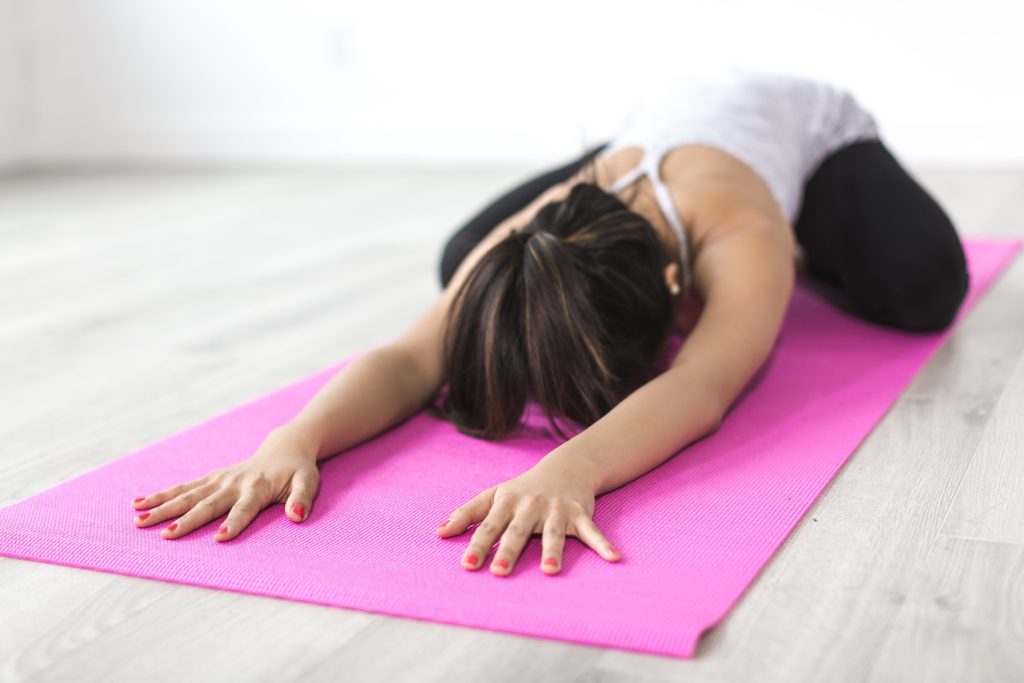
Meditate
Meditation is proven to reduce stress. In an eight-week study, it was confirmed that “mindfulness meditation” reduced the inflammatory response caused by stress. Meditation helps reduce anxiety and improve stress-related conditions like IBS, post-traumatic stress disorder, and fibromyalgia. So, break out the Calm app, Spotify, or a YouTube video and practice mindfulness and meditation and feel your stress melt away. You will probably need it to survive this Easter as after the last two Easters happened during lockdowns, the kids will be like a bottle of shaken pop ready to enjoy the festivities.
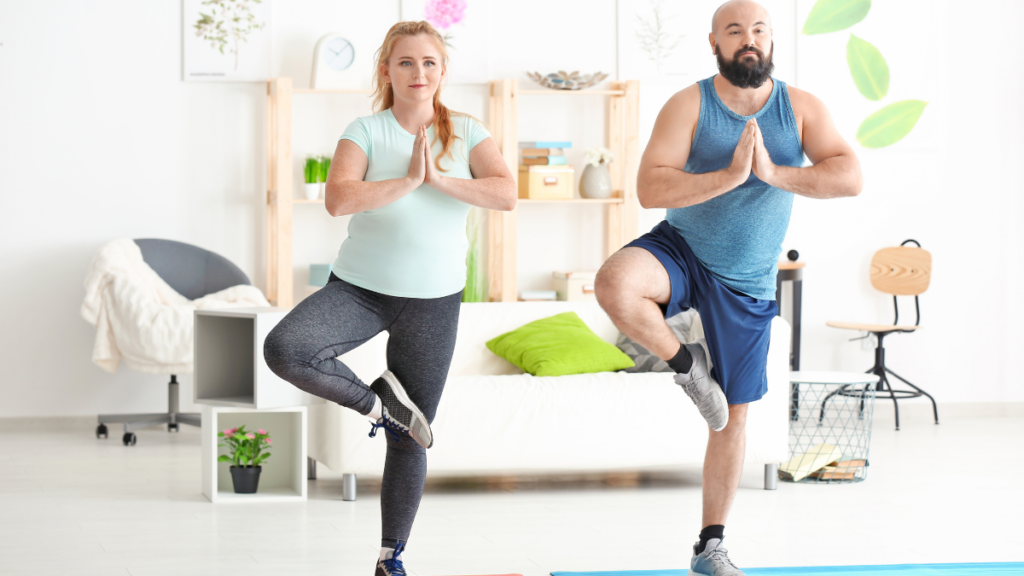
Grab a quick exercise session
“But I don’t have time to work out,” you might think! Not with these children! But did you know that even one of those HIIT seven-minute workouts (yes, seven!) is known to improve muscle tone, increase cardiovascular fitness, and improve insulin sensitivity. Fire up your favourite workout app or do a quick search on YouTube for a seven-minute workout and get energised to take on the day. Trust us, it’ll start to get easier.

Go for a walk or swim
If intensity isn’t really your thing, you can try a relaxing walk or a swim for half an hour. Swimming builds endurance, muscle strength, and cardiovascular fitness as well as helping you maintain a healthy weight, heart, and lungs. It’s a full-body workout. Plus, you can let the kids (if they are old enough and strong swimmers) splash around whilst you get some laps in. It’s also shown to lower blood pressure and control blood sugar. And, as a bonus, swimming is good for people with asthma and arthritis.
Walking, on the other hand, can be done virtually anywhere and studies show that if you spend just thirty minutes per day five days per week, you’ll reduce your risk for coronary heart disease by nineteen per cent. If you have the sort of children that will let you take them on a walk without complaining that their “legs hurt” (or need a wee) after two minutes and insist that you carry them or go full-on “rag doll” tantrum level ten on the ground if you don’t, then you can survive the Easter stress by taking your children on a long walk in the hopes that it will tire them out and make them nap and have the opposite effect on you: give you copious energy to tackle making lunch.

Write a five-minute journal
Journaling is known to reduce stress – in fact, this post talks about the eighty-three benefits of journaling. We won’t go into them all, of course, but journaling is shown to reduce stress, help you meet your goals, reduce symptoms of depression, and enhance your sense of wellbeing. You can take five minutes in your day, maybe before bed or when you’re sipping your morning coffee, and write about anything and everything. Time yourself for five minutes. You can do a free-write where you just write what comes to mind, write a bit of fiction, or respond to a prompt.
You may find it difficult to begin at first but as you practice journaling, you’ll find it easier and easier. It can also serve as a way to show how far you’ve grown and you can also write ways you’re thankful. You can even capture cute and funny moments with your children like the time your eldest told you they loved you or they shared a funny story. In the rush and madness of day-to-day life, it can be easy to lose track of all the moments you’re thankful for but journaling can help you de-stress and regain perspective.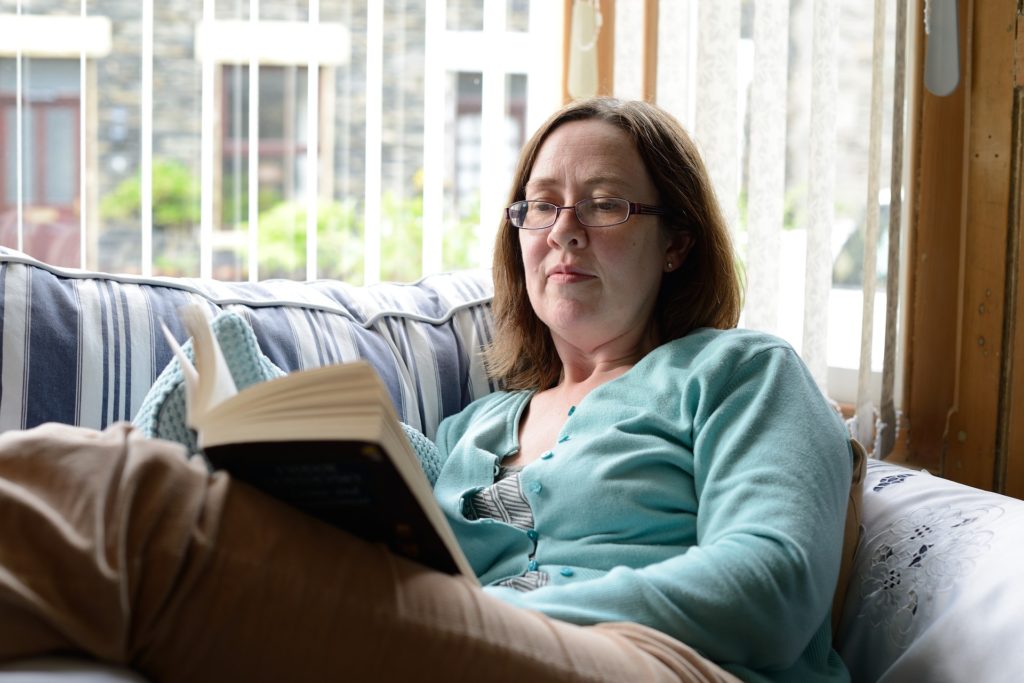
Curl up with a book
For those who love reading, it’s an opportunity to escape into another world – whether you love thrillers, romance, best-sellers, fantasy, crime, or high-brow literature. Reading can help us forget our daily struggles and stress but studies also show that reading can increase your lifespan by seventeen per cent, reduce cognitive decline, improve sleep, enhance social skills and empathy, and increase intelligence. In a University of Sussex study, it concluded that reading can help reduce stress, one of the biggest killers hence why our lifespans might increase the more pages we turn. Grab a cup of tea, a biscuit, and happy reading – even if it’s only a quick ten minutes in the garden before you’re disturbed by your kids, friends, or your neighbour’s cat. Oh, and top tip, leave your mobile, tablet, smartwatch, and laptop somewhere else, so you can enjoy a bit of peace and quiet.
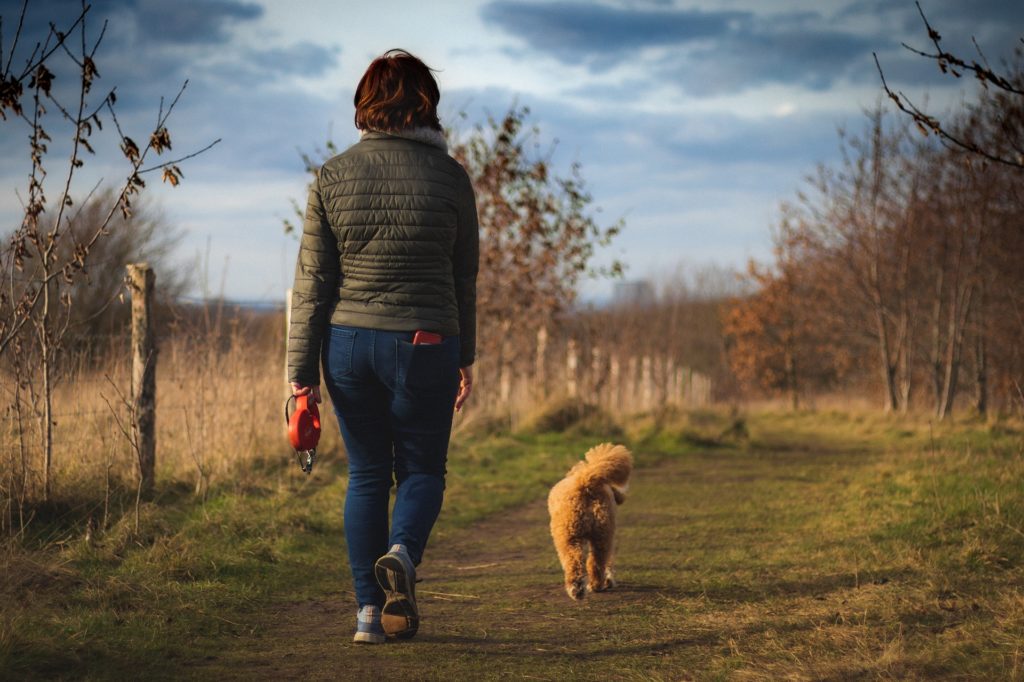
Soak up some nature
In a study by the University of Exeter, it noted that people who spent two hours in natural environments each week had better health and psychological well-being than those who didn’t. There were no benefits reported for those who spent less than that two-hour timeframe. But don’t worry! Harvard Health noted that there are benefits of just spending twenty minutes in nature for stress relief.
If you can bring your children out in nature, then it’s a wonderful way to explore the environment from the woods to the beach to your local park. You can make a nature trip into a scavenger hunt. The Woodland Trust has some ideas for different seasons and what to do with children. Out in nature everyone can breathe easier and run wild and free (metaphorically).
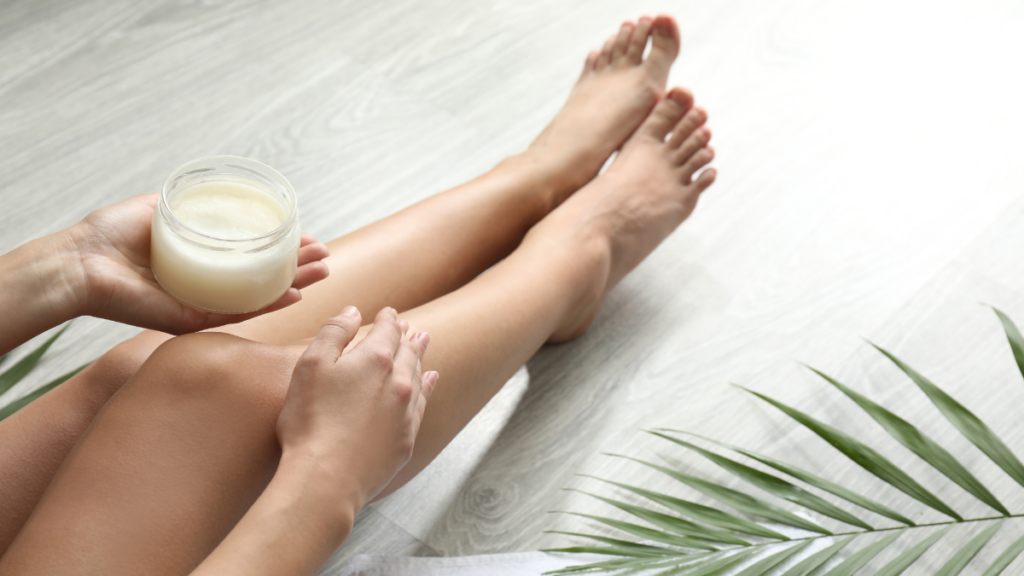
Pamper yourself
When we are busy with children, it’s easy to put yourself last and wonder why you have lunch stuck in your hair (and when was the last time you washed your hair anyway?). It’s easy to let the day go by and fall asleep on the sofa with your husband, wife, or partner watching Peppa Pig before you wake up and realise that you could have had real adult conversation for two hours but instead you watched more children’s TV and then fell asleep with chocolate spread smeared on your face. Not exactly a spa weekend!
You don’t have to escape for the weekend or go to a spa (although wouldn’t that be lovely?) to get relaxed. You can create the right conditions at home for that little time away, so run a hot bubble bath, pop in some bath salts and a bath bomb, and burn Tria’s relaxing “Me time” candle and pretend you’re living in a luxury flat on your own for forty glorious minutes.
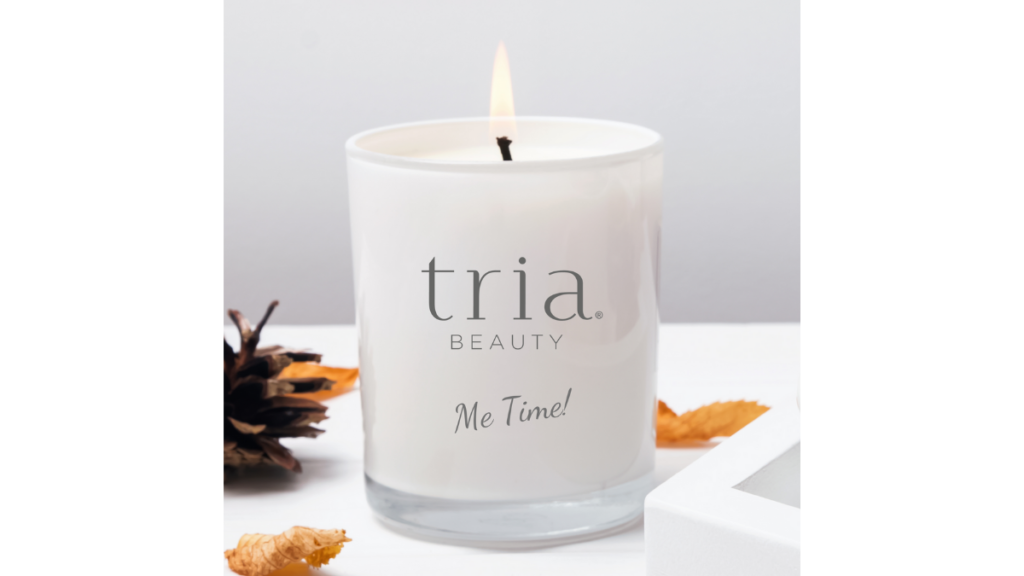
With your quick pamper time, take a moment to massage serum into your face or moisturise your legs too as these areas can get neglected when you’re running around after small ones.
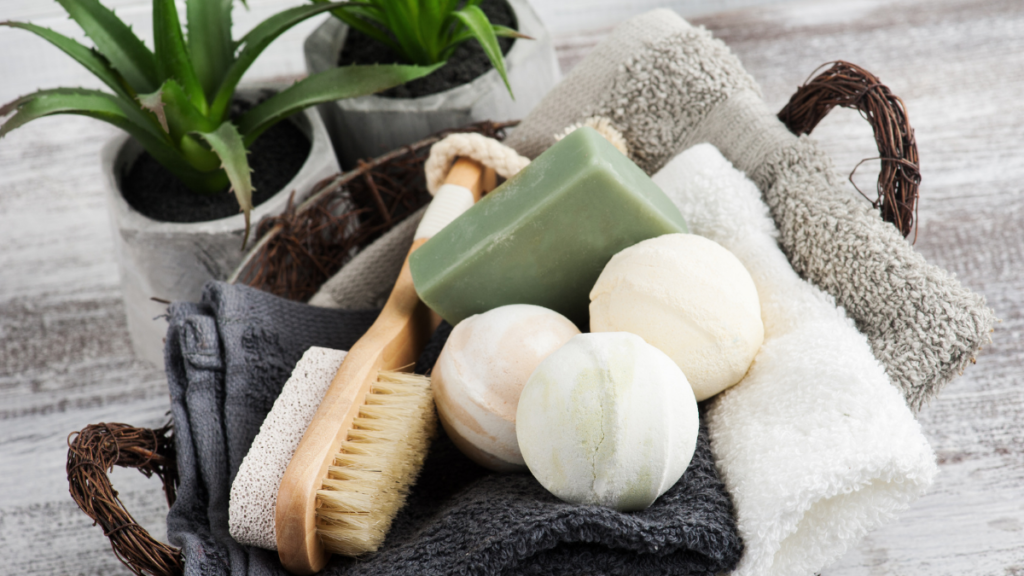
The takeaways
Let us know ways you like to relax, especially when you have young ones, on our social media. Tell us what you’re doing for Easter to relax, to entertain the family, and to keep sane. Happy Bank Holiday!
